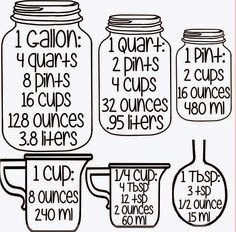Math ~ Skills for Life
Children learn a wide range of new math skills every year in school and teachers help them make connections to real-life situations. Parents can help children develop solid mathematical understanding by exposing them to math in every day interactions.
Money
What Can Parents Do?
Give your children a small allowance and let them spend some while saving some as well. Teach them to keep a record of their "income" and "spending" much the way adults do. This will provide important practice with computation skills and will help to develop an understanding of the value of money.
Include children when you visit the grocery store or eat at restaurants. Looking at receipts and bills will help them to develop a broader understanding of how money works in every day situations.
 Telling Time and
Telling Time and Understanding Elapsed Time
What Can Parents Do?
Keep at least one analog clock in your home and teach your children to use it. It is also helpful to use a variety of ways to say time. For example, say, "quarter past ten" instead of "ten-fifteen." Building vocabulary will lead to increased understanding.
Holding children accountable for their time is important. If you say that they have ten minutes to complete their chore, or a half an hour to finish their homework, set a timer and stick to it.
The more we use the language and practice the concepts of time, the more meaningful it will be for our students.
 Understanding Measurement
Understanding Measurement and Conversions
What Can Parents Do?
Cooking is one of the best ways to help children learn the skills they need to be able to measure and convert units of measure accurately.
Building with children, be it bird houses or bookcases, is a fun way for kids to learn how to use tools and provides meaningful practice of math skills.
Using cups and gallons, inches and feet can be tricky, and adding the metric system makes it even more so. Exposing children to real life situations that utilize these skills will make for long lasting learning.
Few
lessons I cover as a teacher are more dreaded by students and parents
alike than teaching how to convert measurement units. Changing between
the cups and gallons used in the United States can be tricky enough, let
along bringing in the metric system used by other countries. - See more
at:
Great Resources for Families:
http://www.parentfurther.com/resources/enewsletter/saving
http://artfulparent.com/cooking-kids-35-fun-ideas-recipes
http://builtbykids.com/
http://www.pbs.org/parents/preschool/tellingtime.html
ew
lessons I cover as a teacher are more dreaded by students and parents
alike than teaching how to convert measurement units. Changing between
the cups and gallons used in the United States can be tricky enough, let
along bringing in the metric system used by other countries. - See
more at:
Great Resources for Families:
http://www.parentfurther.com/resources/enewsletter/saving
http://artfulparent.com/cooking-kids-35-fun-ideas-recipes
http://builtbykids.com/
http://www.pbs.org/parents/preschool/tellingtime.html
FUN daily math problems for ALL levels of learning!
http://bedtimemath.org/




.gif)
No comments:
Post a Comment